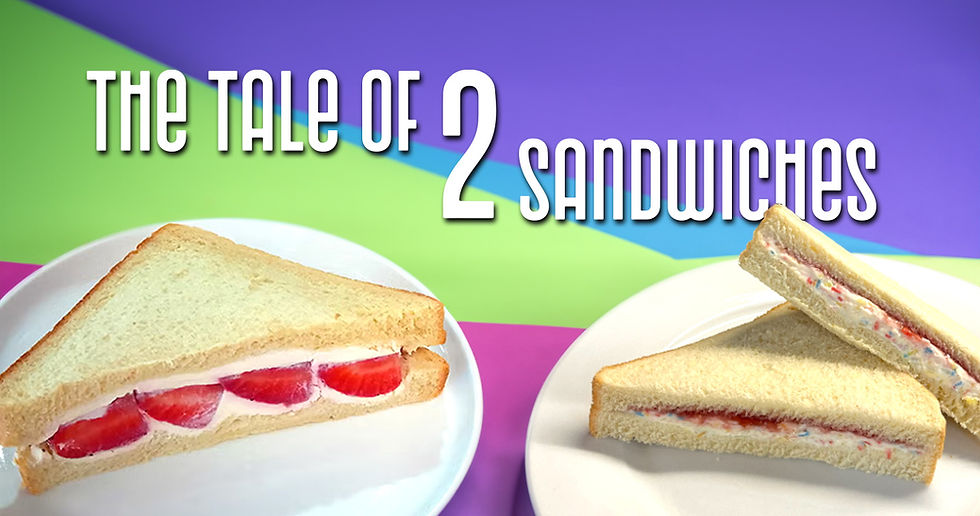Britain's Breakfast Struggle: What Alpro's Research Reveals for NPD?
- Rhys Bennett
- May 8, 2025
- 4 min read

Let's have a proper peek behind the breakfast curtains of the Great British public. Alpro's recent deep dive into our morning munching habits has thrown up some rather tasty (and occasionally slightly alarming) insights that should be pinging on your NPD radar. We all know breakfast is the engine room of the day – a whopping 68% of consumers get that memo loud and clear. But translating that understanding into actual purchasing decisions? That's where the fun (and the challenge) really begins.
Here's the kicker: despite this widespread belief in a healthy start, only a meagre third of consumers are actively trying to curb the sugar rush at breakfast. It's a classic case of intention versus execution, a gap that screams opportunity for innovation. We, as the creators of tomorrow's breakfast staples, need to ask ourselves: how do we bridge this "sugar awareness" gap with genuinely appealing and convenient low-sugar options?
The research highlights a fundamental tension that will resonate with anyone in NPD: the convenience conundrum. A hefty 45% of Brits, despite valuing healthy eating (a commendable 96%!), will choose speed over sustenance when the morning alarm blares. Time, it seems, remains the ultimate breakfast bottleneck. This isn't just about creating healthy products; it's about crafting healthy and effortlessly integrable solutions for those time-strapped consumers. Think beyond the traditional formats – could we see more innovative, pre-prepped, genuinely exciting low-sugar options that slot seamlessly into the morning routine?
Interestingly, habit plays a significant role. A solid 40% of consumers are breakfast repeat offenders, sticking to the same choice daily. This suggests a potential loyalty to established routines, but also a possible openness to switching if a compelling, healthier, and equally convenient alternative emerges. The challenge for NPD is to disrupt these ingrained habits with something truly enticing.
The sugar landscape at breakfast is a fascinating micro-market. While a decent chunk are sugar-conscious, a small but significant 5% actively seek out sugary starts. This highlights the need for diverse offerings – not everyone is on the same health journey. But the overwhelming majority acknowledge the importance of low sugar, even if they struggle to achieve it. This presents a clear demand for palatable and satisfying low-sugar alternatives that don't feel like a compromise.
Consumers themselves have identified porridge and eggs as the low-sugar breakfast heroes. This provides a valuable steer for NPD – what can we learn from the inherent "goodness" perception of these staples? Can we innovate around these formats or leverage similar nutritional profiles in new and exciting ways?
However, the barriers to low-sugar remain significant: the tyranny of time (45%) and those persistent sugar cravings (29%). This isn't just about formulating healthier products; it's about understanding the psychological and practical hurdles consumers face. Can we develop products that actively combat cravings or offer solutions that genuinely save precious morning minutes?
Now, while Alpro's research naturally shines a light on the plant-based category, the broader insight for NPD is clear: there's a significant appetite for genuinely delicious, convenient, and low-sugar breakfast options across the board. Their finding that 43% of Brits are choosing more plant-based drinks highlights a growing openness to alternatives, driven by taste (a key motivator for any food purchase!). This suggests that plant-based can be a powerful vehicle for delivering on the low-sugar and health-conscious demands, but the taste and texture have to be spot-on to convert the masses.
Crucially, the research revealed that 14% of consumers simply don't know what the low-sugar alternatives are. This isn't just a consumer education issue; it's an NPD and marketing opportunity. Are we effectively communicating the deliciousness and versatility of our low-sugar innovations? Are we making it easy for consumers to identify and understand their options?
For the NPD gurus in the room, here are a few key takeaways bubbling up from this breakfast deep-dive:
Convenience is King (or Queen): Low-sugar options must seamlessly integrate into busy morning routines. Think beyond traditional formats and explore genuinely time-saving solutions.
Taste Trumps All: Health benefits are important, but ultimately, it has to taste good to win over consumers, especially those battling cravings. Low-sugar doesn't have to mean low-flavour.
Bridge the Knowledge Gap: Consumers need clear and compelling information about low-sugar alternatives. Make it easy for them to understand the benefits and how to incorporate these products into their daily lives.
Leverage Familiarity: Explore innovations around perceived "healthy" staples like oats and eggs, or consider how plant-based platforms can deliver on low-sugar and taste expectations.
Consider the "Occasion": Breakfast isn't a monolithic event. Tailor NPD to different morning needs – the quick weekday grab vs. the more leisurely weekend brunch.
Ultimately, Britain's breakfast habits reveal a nation striving for a healthier start but often hampered by time and temptation. For those in NPD, this isn't a problem; it's a fertile ground for innovation. The challenge lies in creating those truly delicious, effortlessly convenient, and genuinely appealing low-sugar options that finally help consumers turn their good intentions into delicious reality. Now, who's for brainstorming some breakfast brilliance?



